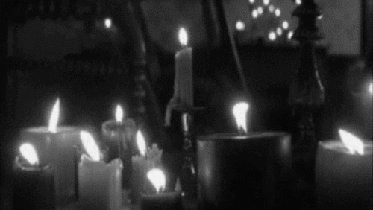 |   |
African religion which is located especially in the former Dahomey and Togo, voodoo has, in the same way that other religions found today in America, transported, with the migration of slaves and prices of certain transformations, to Haiti. Folklore for some, for all other superstitions, voodoo (or voodoo) Haitian been viewed mostly as an African heritage endangered. He could have survived in spite of all prejudice and all the persecutions, only history of concrete men who experience may help to understand it. What is there in Haitian society where it is most developed? How can we identify its own originality?
In the southern region of Benin Yoruba
population keeps alive the tradition of masks Gelede. These
masks are used to honor female spirits called "Iya Awon" and living
in the sea
The
term voodoo (vodou), or voodoo, means Dahomey (now Republic of Benin) and Togo
gods or unseen powers that men trying to reconcile, individually or
collectively, to ensure a happy life. The term corresponding Yoruba
Orisa. We
can consider that the prevailing religious system of Nigeria in Togo, the
Yoruba, Fon and Ewe, is somewhat similar, although local variations are
numerous.
The term voodoo can be applied to deified ancestors
(including the royal families), but its most common refers to the forces of
nature such as land, sea or lightning. Often
gathered under one heading (Hevieso, god of thunder; Sapata, god of the earth)
gods families the skills and powers sometimes redundant, sometimes mixed.
The output
Zangbeto masks, large masks covered with straw colored. Zangbeto
represents non-human spirits, the forces of nature and the night that inhabited
the earth before man. The
mask wearers belong to a secret society and their identity is unknown to the
uninitiated, the mask must remain an independent entity with its own life.
The
gods appear differently in different political contexts. Thus,
in Dahomey there were some real struggles between the voodoo of the royal
family and those in large public worship. The
prestige attached to the office of priest varies, too, region and from one era
to another. They
symbolize the impersonal powers and play such an important role in preventing
or treating diseases or epidemics, voodoo gathered in a pantheon that is
reminiscent in many respects that of the ancient Greek:
by the functions performed and the powers represented on the one hand (Hevieso
is the god of heaven and the Lightning; Sapata that of Earth; Legba perform all
the functions and sometimes conflicting roles of Hermes), and secondly and,
above all, by the structural logic that they seem to obey.
As
the gods studied by Jean-Pierre Vernant (Myth and Thought among the Greeks,
1965, Myth and Tragedy in Ancient Greece, 1972), the Gulf of Benin voodoo are
"powers, not people", and present some remarkable features :
existence of divine couples, ambiguity of each divine figure, and impersonal
existence either singular or plural gods. And
they provided an ideal material for elaborations syncretism which has emerged
in Haiti and Brazil. But,
although certain gods, rituals and symbols have crossed some damage without the
ocean, thus testifying to the wonderful memory of mankind, we must not confuse
the ritual events of "voodoo" or Brazilian with Haitian voodoo
religions African
gods who testify on the contrary a remarkable resistance to all forms of
inspiration syncretism.



